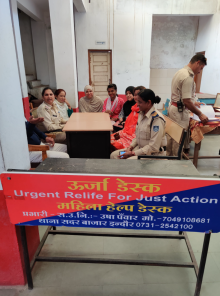Studying the impact of Urgent Action and Just Relief (URJA) on improving women’s security in Madhya Pradesh, India. Studies show that police mistreatment in marginalized and resource poor communities – particularly in the gender violence context, where female victims are often blamed or challenged, leads to mistrust of police. Hierarchical police structure makes it difficult to introduce new practices unless senior officials initiate new interventions and are involved in the implementation. Police training is especially challenging in low-income societies, where funding tends to be directed to more visible areas, such as improved police infrastructure and more officers on the streets. URJA is a policy intervention that aims to increase access to women’s police stations through the creation of helpdesks, establishing standard operating procedures and training to guide officers on cases involving women and hiring additional female police officers. Reach Researchers aim to discover the impact of the standard operating procedures and trainings under the URJA Program on gender sensitive policing in Madhya Pradesh.
Key Takeaways
URJA shows initial promise in effectively introducing a system to handle crimes against women. Based on the case study findings, key recommendations to further the rollout of URJA include:
- Integrating women’s help desks in every police station’s routines improves policing for women.
- Involvement of senior officers is crucial in both creating the physical help desks and sustaining the change to become a more gender sensitive police force.
- Standard operating procedures must complement gender sensitivity training.
- Monitoring: To sustain a behaviour change, repeated interaction among all hierarchies must occur to improve and resolve challenges in the early days of the intervention and beyond.
